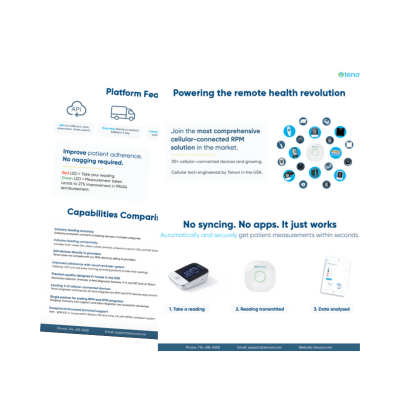Heart failure is a chronic condition that affects millions worldwide, necessitating ongoing management and frequent hospital visits. However, recent technological advancements have enabled monitoring heart failure patients remotely. One such breakthrough is the CardioMEMS Heart Failure (HF) System, a heart failure device.
This article explores how the CardioMEMS system functions, its benefits, and a recent study supporting its use.
Understanding the CardioMEMS Heart Failure Device
The CardioMEMS heart failure device is a state-of-the-art remote monitoring system designed to assist doctors in managing patients with heart failure. It consists of a small sensor, about the size of a paperclip, implanted in the patient’s pulmonary artery during a minimally invasive procedure. This sensor is key to the device’s functionality as it continuously measures the patient’s pulmonary artery pressure and heart rate.
The sensor captures these vital readings daily and sends the data wirelessly to the patient’s healthcare provider. Patients can also monitor their health through the myCardioMEMS app, allowing them to take readings and receive notifications. This innovative heart failure device provides a non-invasive way for doctors to keep a close watch on their patients’ conditions, enabling timely interventions.
Benefits of the CardioMEMS Device
The primary benefit of the CardioMEMS heart failure device is its ability to offer real-time monitoring without the need for patients to leave their homes. Healthcare providers can detect early signs of worsening heart failure by remotely tracking pulmonary artery pressure and heart rate. This proactive approach allows for timely adjustments in medication or other treatments, potentially preventing the need for hospital admissions.
CarioMEMS remote patient monitoring case studies show how the device helps improve patients’ quality of life by reducing the number of hospital visits and enabling more personalized care. With the CardioMEMS system, patients feel more secure knowing that their doctors are continuously monitoring their health and ready to act before any critical issues arise.
Study Insights on the CardioMEMS Heart Failure Device
Recent studies have examined the effectiveness and cost-benefit of the CardioMEMS heart failure device in clinical settings. One notable study analyzed 43 patients who underwent implantation of the CardioMEMS device. The study’s objective was to evaluate the costs associated with the device and the outcomes over a period of one to two years after implantation.
The findings confirmed that the CardioMEMS device reduces hospitalization rates, a key benefit for patients and healthcare systems alike. While the study did not directly measure quality-adjusted life years (QALYs), it referenced previous literature that highlighted the device’s favorable impact on QALYs. This suggests that patients experience a better quality of life when monitored using the CardioMEMS system.
Real-Life Impact of CardioMEMS
For patients like Chris Roseboro, a patient at Novant Health, the CardioMEMS heart failure device has been life-changing. Roseboro, who has struggled with congestive heart failure for years, found the device to be a revelation. “I have been in and out of different hospitals for years with congestive heart failure issues,” Roseboro shared. “It feels good knowing that my doctors are keeping an eye on me. I want to spend more time with my family outside of the hospital.”
Doctors at Novant Health Forsyth Medical Center have been using the CardioMEMS system to monitor patients remotely and make real-time adjustments to treatment plans based on daily lung pressure readings. This approach helps prevent hospital admissions and allows patients to maintain a better quality of life.
The Future of Heart Failure Management
The CardioMEMS heart failure device represents a significant advancement in remote patient monitoring and is a crucial component of comprehensive heart failure management strategies. By allowing healthcare providers to monitor patients closely and intervene early, the CardioMEMS system not only reduces hospitalizations but also enhances the overall quality of care.
As remote patient monitoring for heart failure continues to evolve, technologies like CardioMEMS will play a vital role in improving outcomes for heart failure patients. With the ongoing development of new devices for remote patient monitoring of heart failure and therapies, the future looks promising for those affected by this chronic condition.
In conclusion, the CardioMEMS heart failure device is a revolutionary tool that provides both patients and healthcare providers with peace of mind. By facilitating early detection and intervention, it holds the potential to significantly improve the management of heart failure and enhance patient outcomes.


